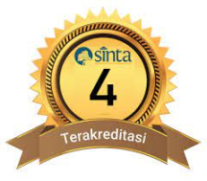Exploration of the Effect of Multiple Charges in the Teaching of Electrostatics
Abstract
The paper presents the theme addressed in the classroom for students of the 3rd year of high school, in a public school in São Cristóvão, Rio de Janeiro, with the objective of extracting information through the exploration of the effects of multiple loads in the teaching of electrostatics. Two principles of electrostatics were addressed, such as load conservation and quantization of electrical load, being fundamental points for the experimental realization. The theoretical foundation was based on John Dewey is arguments, emphasizing the need for the use of experiments in science classes, conditioning the student to be the protagonist of the educational process, as well as that of Paulo Freire, so that students participate in the activities with critical and reflective posture, raising hypotheses and arguments necessary for the construction of their own knowledge. We initially discuss theoretically the fundamental aspects of the electrical charge, with the initial discoveries of the Greeks, traveling through scientists at various times in history, working on the development and improvement of electricity. We applied an experimental activity to explore and complement the exposed treatment on the interactions of electrical charges, with the division of two groups, so that students discuss with each other and work to support the assumption, according to the determinations of the questions of the virtual experiment. We discuss the results, dialoguing with the students the possibilities and facts determined by physics.
Full Text:
PDFReferences
F. A. C. Vieira. Teaching by research and critical meaningful learning: phenomenological analysis of the potential of a teaching proposal. Doctoral Thesis, Faculty of Sciences, University of São Paulo, Brazil, 2012.
V. L. Milk. The study of the various forms of energy production in a CTSA approach: seeking evidence of scientific literacy of high school students. Master’s degree in physics teaching, Federal University of Espírito Santo, Vitória, Brazil, 2015.
P. Freire. Pedagogy of autonomy: knowledge necessary for educational practice. 43rd ed. São Paulo, Brazil: Peace and Earth, 2011.
B. G. Nadal and S. Papi. The work of teaching: contemporary challenges. In: B. G. Nadal. (Org.). Pedagogical practices in the early years: conception and action. Ponta Grossa, Brazil, 2007.
B. A. Rodrigues and A. T. Borges. Science teaching by research: a historical reconstruction. Proceedings of the XI Meeting of Research in Physics Teaching. Curitiba, Brazil, 2008.
J. F. Ramalho, G. F. Nicolau and P. A. Toledo. The Foundations of Physics, vol 3. Electricity, introduction to modern physics and dimensional analysis. 10th ed. São Paulo, Brazil: Moderna, 2009.
D. Halliday, R. Resnick and J. Walker. Fundamentals of Physics, Volume 3: Electromagnetism. Translation and technical revision BIASI, R. S. 8th edition, Rio de Janeiro, Brazil: LTC, 2009. 4v.
C. S. Sidewalk and J. L. Sampaio. Classical physics, 3: electricity and modern physics. 1st ed. São Paulo, Brazil: Actual, 2012.
C. O. Grace. Lesson 1_1: electric charge. Short Distance Learning Program, Course of Mechanical Engineering, General and Experimental Physics III, Department of Physics, University of Santa Maria, Santa Maria, Brazil, 2012. Available: http://coral.ufsm.br/cograca/graca1_1.pdf.
R. Wykrota. Electricity. Physics handout. Part 2. Notes 82, 83 and 84. State Center for Professional Education of Curitiba, Curitiba, Brazil, 2023. Available: http://www.ceepcuritiba.com.br/arquivos/Professores/Ronald%20Wykrota/Fisica/APOSTILA%20FISICA%20parte%202%20CEEP.pdf.
W. Christian and M. Belloni. Exploration 22.2: explore the effect of multiple charges. Physlet Physics 3rd Ed. Northfield: Compadre, 2013. Available: https://www.compadre.org/Physlets/electromagnetism/ex22_2.cfm.
DOI: http://dx.doi.org/10.24036/14988171074








